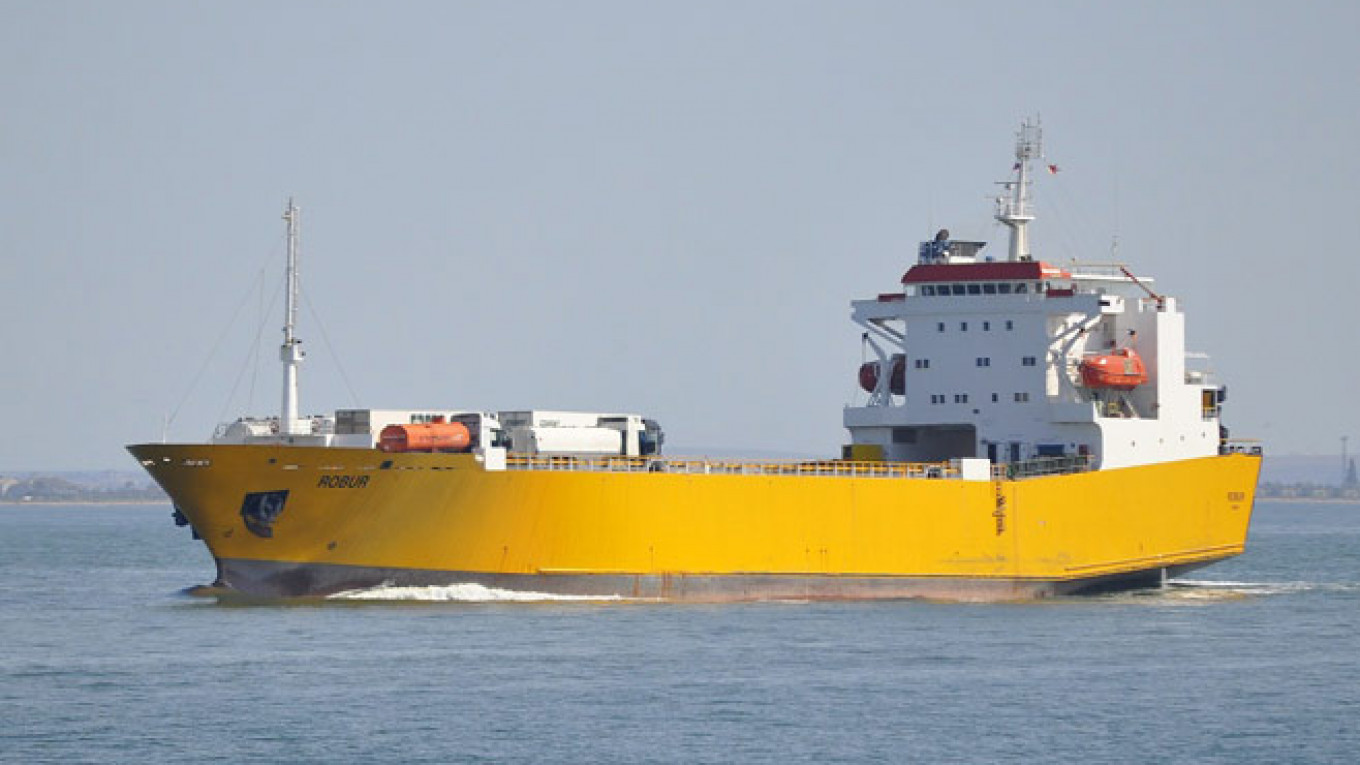The Alexandr Tkachenko, an aging ferry with a canary-yellow hull, usually carries people across the Kerch Strait, a bustling sea route and the only connection between Russia and Crimea, the peninsula Moscow annexed from Ukraine last year.
But the crossings stopped abruptly in late August when the Russian government chartered the ship, according to an employee at the ferry company. It was destined for another mission of possibly greater strategic importance — expanding Russia's supply line to areas held by Syrian President Bashar Assad.
On Sept. 11 — as reports were emerging of increasing Russian military activity in Syria — the ferry docked at the port of Tartus, maritime data showed, an area still controlled by Assad and where Russia leases a naval base. On its way it had stopped off at the Russian Black Sea port of Novorossiisk, where it took on board white-painted trucks, a port source said.
The ship's journey — pieced together using port arrivals data, Reuters data and information from a maritime intelligence source — is one part of a sharp increase in sea traffic between Russia and Syria, where Kremlin ally Assad has suffered sharp reversals in his fight to stay in power.
Reuters was not able to confirm what was in the trucks or whether they left the ship at Tartus.
The Russian Defense Ministry did not respond to written questions from Reuters about whether it had chartered the vessel. Russia's Ministry of Emergencies, which oversees foreign and humanitarian aid, said it knew nothing of the shipment.
Increase in Traffic
U.S. officials and military and rebel sources inside Syria say the Russian military has been increasing its presence in Assad-controlled areas. Washington has suggested that Russia may be preparing an airfield near the port city of Latakia, a stronghold of Assad, just north of Tartus.
While the Kremlin has not acknowledged any military build-up, publicly-available ship tracking data show an increase in shipping traffic between the two countries, more voyages than can be explained by the usual pattern of trade.
Cargo traffic to Tartous from Novorossiisk had averaged about one vessel a month in the period from September 2014 to September 2015, for example. Prior to August, only one ship from Novorossiisk had called at Latakia, another Syrian port up the coast from Tartous, in 2014-2015.
But in the period from Sept. 9 to Sept. 24, at least six cargo vessels that set out from Novorossiisk called at either Tartus or Latakia, both of which are in Syrian government-controlled territory, the data showed.
Government Charter
The Aleksandr Tkachenko was one of those vessels.
Crimea-based logistics company, SMT-K, which had been using the ship as a ferry across the Kerch Strait since March said its crossings stopped at the end of August. An employee who answered the phone at the company's office said the Russian government had chartered the ship. The employee declined to give his name.
The vessel was next spotted in Novorossiisk, a short distance away on the Black Sea. It docked there on Sept. 1, according to tracking data. A Novorossiisk port employee said he was involved in loading the Alexander Tkachenko, and a second ship, with white trucks which were to be shipped to Syria.
Shipping databases list the registered owner of the Alexandr Tkachenko as Moscow-based firm Koksokhimtrans Ltd.
Calls to a number listed for Koksokhimtrans went through to a company called Sovfrakht-Sovmortrans. One person who answered the telephone said he did not know who owned the vessel. Koksokhimtrans was part of the Sovfrakht-Sovmortrans group, this person said. That account was disputed by the manager responsible for Sovfrakht-Sovmortrans' vessels, Ivan Okorokov. He said Koksokhimtrans was not part of Sovfrakht-Sovmortrans.
A Message from The Moscow Times:
Dear readers,
We are facing unprecedented challenges. Russia's Prosecutor General's Office has designated The Moscow Times as an "undesirable" organization, criminalizing our work and putting our staff at risk of prosecution. This follows our earlier unjust labeling as a "foreign agent."
These actions are direct attempts to silence independent journalism in Russia. The authorities claim our work "discredits the decisions of the Russian leadership." We see things differently: we strive to provide accurate, unbiased reporting on Russia.
We, the journalists of The Moscow Times, refuse to be silenced. But to continue our work, we need your help.
Your support, no matter how small, makes a world of difference. If you can, please support us monthly starting from just $2. It's quick to set up, and every contribution makes a significant impact.
By supporting The Moscow Times, you're defending open, independent journalism in the face of repression. Thank you for standing with us.
Remind me later.




